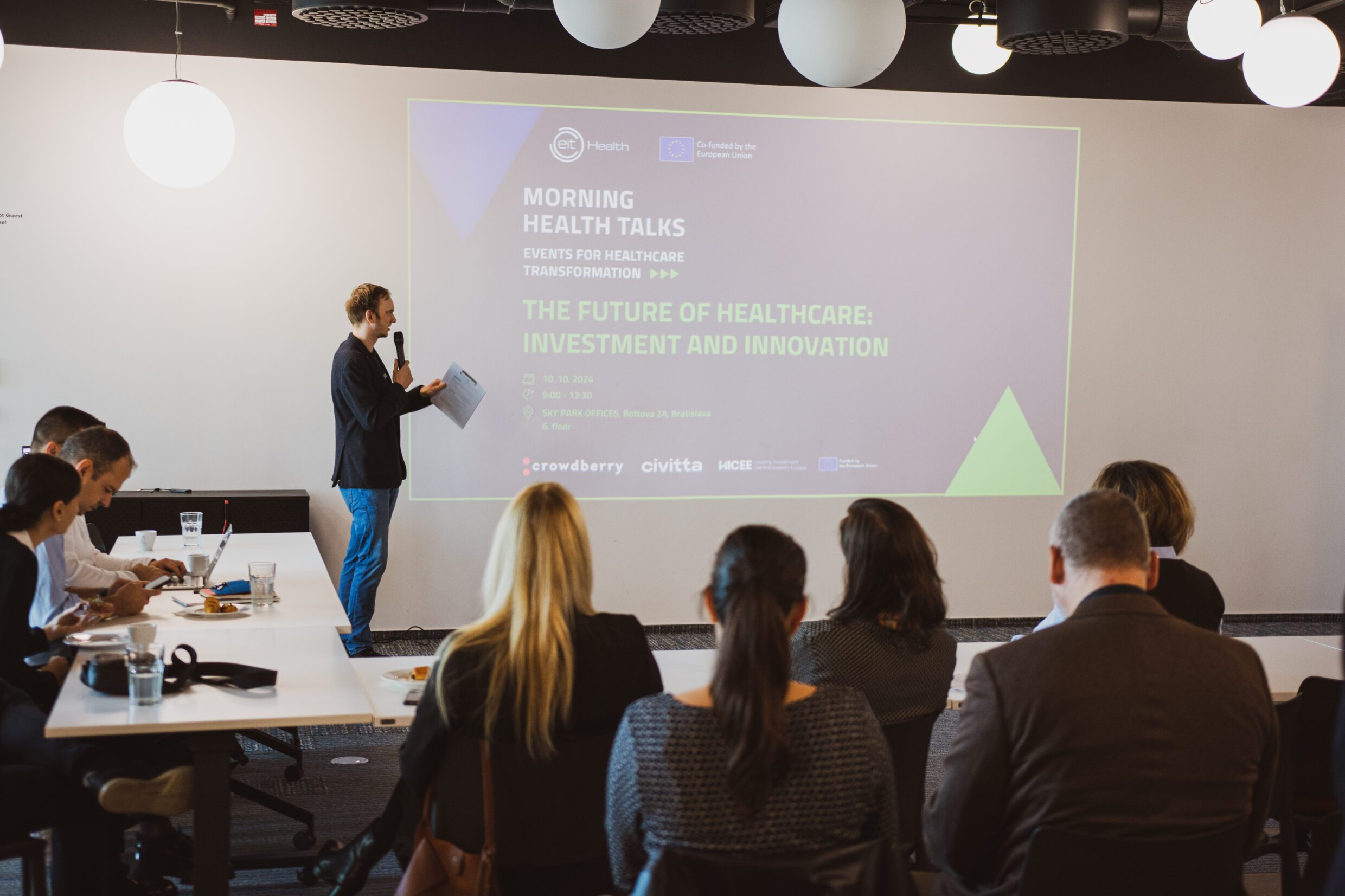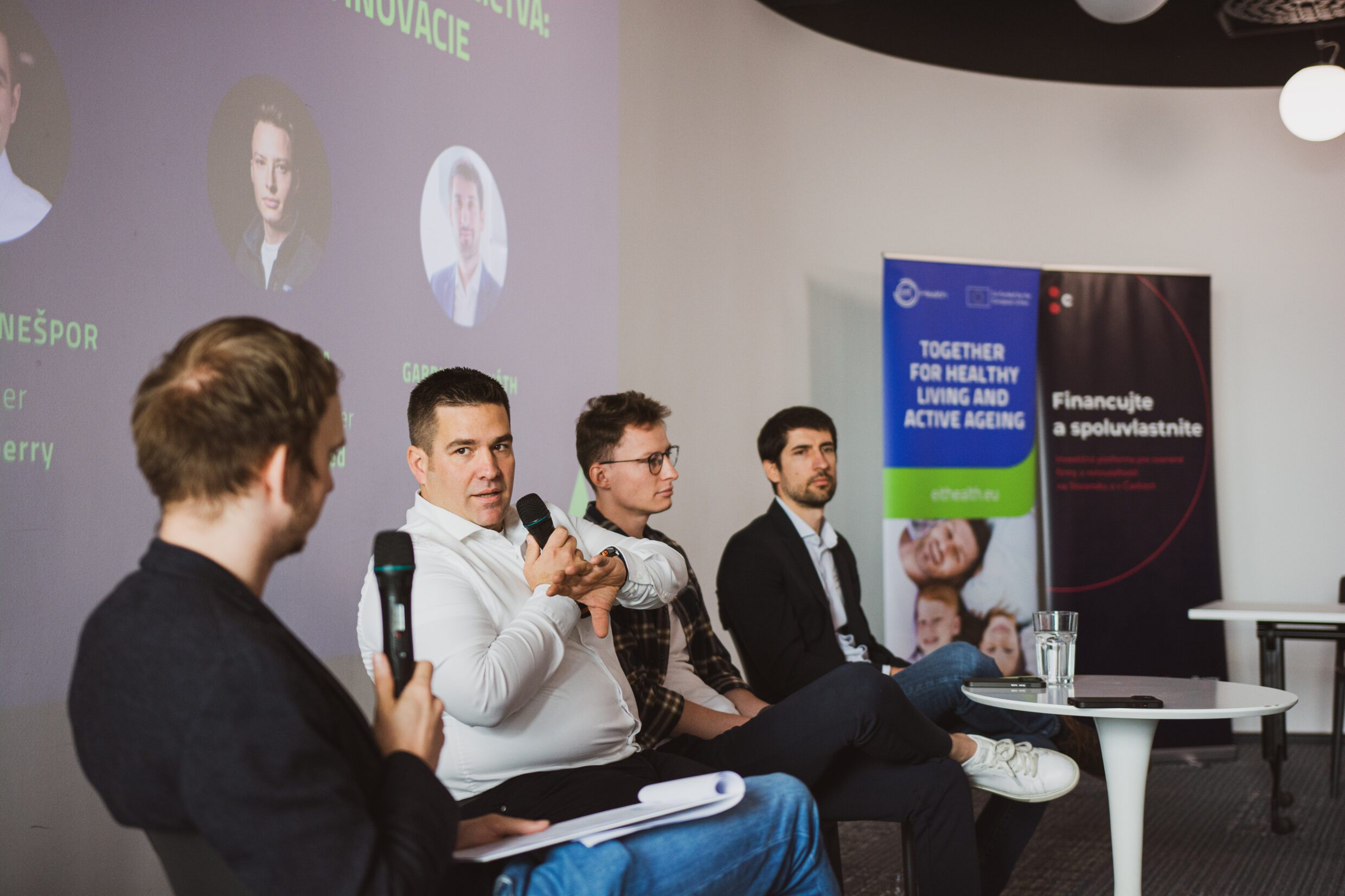Morning Health Talks Bratislava: Exploring healthcare innovation and investment
On October 10, 2024, Civitta hosted the latest edition of EIT Health Morning Health Talks in Bratislava, bringing together healthcare leaders, investors, and startups. Keynote speaker Zuzana Kasanová from KU Leuven shared insights into building successful biomedical startups. She highlighted key factors like market validation, regulatory compliance, and team strength. KU Leuven’s accelerator program has supported 44 impactful projects, with 12 spin-offs expected by 2024.



Investing in healthcare innovation in Central Eastern Europe
Michal Nešpor from Crowdberry addressed the challenges of attracting investments to the region. Slovakia lags behind in healthcare investments compared to other EU countries, with limited access to foreign investors. He emphasized the importance of private capital in driving local healthcare startups forward. Abigail Sidibé, HICEE project coordinator, discussed a gap analysis revealing barriers in market validation, legal support, and a lack of business acumen in researchers.
Investor panel discussion
The event’s panel featured prominent investors discussing the startup ecosystem in Central Eastern Europe. They agreed that Slovakia has significant talent but lacks the volume of projects needed to sustain growth. Investors also emphasized the importance of long-term business models and market readiness, particularly in the health sector, which faces stricter regulations and longer development cycles compared to other industries.
How startups finance their innovations
The event concluded with a showcase of prominent Slovak healthcare startups. Featuring Blažena Ambroz Sedrovičová from AI Dental, Martin Vavrinčík from Novuma and Alan Böhm from Seerlinq. Ambroz shared her experience navigating the certification process for AI-driven dental solutions, while Böhm showcased Seerlinq’s breakthrough telemedicine technology, which has already secured significant investment and clinical validation. We discussed funding strategies for healthcare startups and shared our know-how in attracting investment in healthcare innovation.
Looking forward
The Morning Health Talks provided insights into healthcare innovation and investment, helping bridge gaps between startups, investors, and academic institutions. The discussions underlined the importance of fostering collaboration to unlock the full potential of healthcare innovations in Central Eastern Europe.